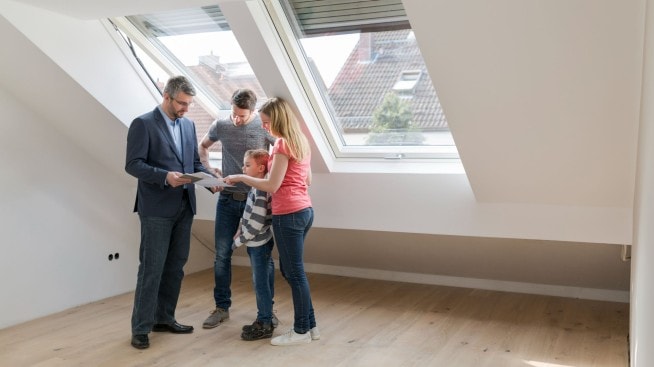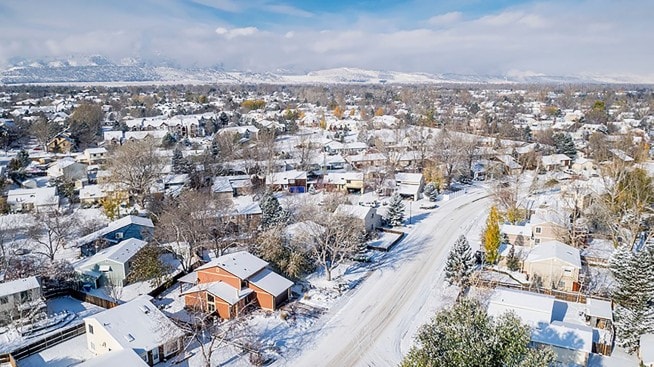10 questions to ask when viewing a house

Choosing the right home is exciting, but it can be a lot of work. Even with a great real estate agent and a solid understanding of the features you're looking for in a house, locating and reviewing homes takes time and energy.
To make viewings easier and more efficient, it helps to come armed with a list of important questions. Once you get these details about each property, you can more effectively compare all the houses you’ve seen and make an informed decision about the right home for you and your family.
Who should you bring when you view a home?
Your real estate agent should be present at any property you view, so they can get a better understanding of what you like and dislike about the home. They can also answer many questions, as well as give you advice on whether the house is a good fit based on your wants and needs.
If you have a spouse or partner, they should attend a viewing. In some cases, you may decide to go alone to the first selections your real estate agent shows you, then narrow down the options to two or three strong possibilities. Though this seems like it would save time by eliminating homes that are an obvious no-go, seeing these poor fits can help spark important conversations with your partner about what you really want in a home. For that reason, it's ideal for both of you to look at every house.
You may wish to take one other person, such as a close friend or family member who is a contractor or offers other expertise about residential properties. However, it's often best to wait on bringing in a third person until you have your options narrowed down to only the most likely candidates.
When attending a scheduled viewing or open house, it's best if you don't bring your children. Younger kids can become bored and need attention at a time when you should be focused on looking critically at each home. Even older children should only look at the houses you deem to be front runners, as they can get excited about features that aren't on your list and then be disappointed that you didn't, for example, choose the house with the swimming pool or the loft in the kids' room.
What should you look for when viewing a home?
It's important to choose homes to view that fit within your price range. Sometimes, a real estate agent may suggest you view a home that is outside of your budget but fits all your other requirements. However, if you don't have any flexibility on what you can afford, it can just lead to disappointment. Getting prequalified before looking at homes can help you narrow down your search to homes that fall within your budget.
You should also have a good idea of your preferred locations and stick close to those areas when looking for properties. While you can make updates and renovations to the house, you can't change the neighborhood.
What to ask your real estate agent before your viewing
Your agent should have done some research on any property they’re showing to you. If for any reason you’re not seeing the property with your agent, such as during an open house, find out these answers from your agent when you can.
- How long has the property been on the market? Properties that have been sitting for some time may have more motivated sellers. There also could be a major problem that’s stopped other potential buyers. Alternatively, if a home hasn’t been available for long, you may need to prepare to act fast in making an offer.
- What is the cost of comparable homes in the area? Your agent should have an idea of whether the property you're viewing is reasonably priced compared to other houses like it. If the cost is higher than expected, you should be ready to negotiate should you decide to make an offer. If it’s lower, this could mean there’s a problem with the home.
- Is the home in a flood zone? Or likely to be impacted by other natural disasters? Your agent can check the homes you’re interested in against a FEMA map of flood zones, or may have enough expertise in the area to know which properties are more likely to be at risk in case of natural disasters.
- Is there a homeowners association? You'll want to know if the area has rules and regulations you must follow, as well as any fees, when they’re due and what they pay for. You may have more questions that your agent can answer after viewing several properties, but it's good to know this information before becoming too attached to any home.
10 things to ask when you view a home
You may have additional questions you ask about a property, but these are a good start to give you a basic understanding of the home and its condition.
1. Why is the seller moving?
A seller who is leaving the area to take a different job or who has outgrown the home has a very different reason for moving than someone who doesn't get along with the neighbors. Knowing why the seller is leaving can also help you know if you can negotiate the price. If the seller is highly motivated, you may have some room to make additional requests for contingencies in your offer.
2. What comes with the property?
Fixtures like faucets and built-in closets should stay with the home, but you can ask to make sure. Appliances, chandeliers, drapes and outdoor sheds or play structures sometimes stay with the home, but may also be taken by the seller.
3. How old is the roof?
Replacing the roof is a big expense, and one that people expecting to move might put off. A new roof can cost several thousand dollars, so find out if that's needed. A roof in need of repair could also be a problem for your lender, and you may have to negotiate with the seller to replace it before you can get your mortgage.
4. How old — and how efficient — is the heating and cooling system?
An ancient furnace will cost a considerable amount to replace. Even a newer furnace or heat pump may be loud or lack the energy efficiency that current models provide. You'll want to find out more about how the home is heated and cooled and whether repairing or replacing that system will be an immediate concern.
5. Are there any disclosures?
Sellers are required to report if there could be lead paint in the house. And in some locations, they also need to disclose the presence of asbestos, mold and water or pest damage. If the seller doesn't know, though, they can't be expected to reveal the information. Even if you want to have a specialized inspection that tests for asbestos or other harmful materials, the seller may not permit it. For homes built during the time those materials were commonly used, you may have to use your best guess and resolve to pay if you need to remove these materials.
6. Are there any problems with the house?
Even though the seller may not legally have to reveal some information about the home, many will. They don't want you to get to the inspection stage, be surprised about a problem and back out of the sale. Listen carefully to any information the seller gives you about the home's condition. You may also find out that many key fixtures have been replaced recently, which is good news.
7. Have you made any additions or renovations?
Sometimes, additions aren't reflected in the home's official records, so the actual square footage is more than you initially thought. That can be one reason for a higher price.
If additions have been made, ask about the contractor used. If a homeowner likes "do-it-yourself" projects, they may not have used the proper techniques or gotten permits for the work done. It's best to be cautious about any major work done by a homeowner who is not a licensed contractor.
8. What's the water pressure like?
Minimal water pressure can greatly diminish your enjoyment of the home and be expensive to fix. Check for water coming from shower heads and sinks. Turn on water in two areas of the home and see if that reduces flow.
9. Has the property been surveyed recently? Where are the pins?
To avoid any clashes over property lines, find out if there are surveying markers that show the boundaries of the yard. Make sure there are no fences or structures that extend over the line.
10. Are there any easements?
An easement is a legal right of a neighbor to access your property. This can happen if a shared driveway, for example, starts on your land and branches off to other houses. If you have any plans for the yard, you'll want to know if there's anything you can't change.
Your real estate agent can suggest additional questions based on your requirements for a home. It's helpful to write down the answers for each property and keep a document that compares each home you’re considering. Getting answers and knowing what to expect can help you make the homebuying process move more smoothly.
If you’re just starting your homebuying journey, it's helpful to get prequalified for a mortgage. Talk to a Home Lending Advisor for help.



